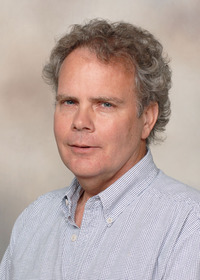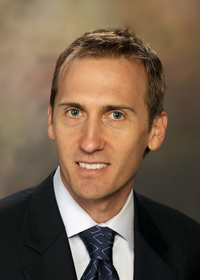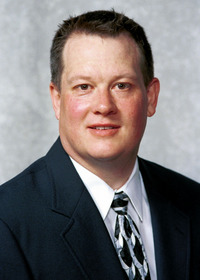Information Possibly Outdated
The information presented on this page was originally released on August 25, 2003. It may not be outdated, but please search our site for more current information. If you plan to quote or reference this information in a publication, please check with the Extension specialist or author before proceeding.
State's golf courses ranked best again
MISSISSIPPI STATE -- Golfers who travel the country in search of the perfect course may want to take a closer look at the playing surfaces offered in Mississippi.
Nationally recognized newsman and commentator Paul Harvey recently reported Mississippi was recognized for having the finest golf courses in the nation for the second consecutive year by The Golf Insider magazine.
"We have some good, quality golf courses and generally ideal environmental conditions to play golf much of the year," said Wayne Wells, a Mississippi State University Extension Service turf specialist and plant and soil sciences professor. "Mississippi's courses are also very accessible and affordable."
MS-Supreme, an ultra dwarf Bermuda grass discovered by Mississippi Agricultural and Forestry Experiment Station researchers, provides a better playing surface and withstands the state's hot weather exceptionally. Shorter internodes and leaves mean mowers can cut the grass shorter without damaging it, and the grass does not grow as tall as other grasses.
Bermuda grasses work well on golf greens because they are vegetatively propagated, rather than being produced by seed. MS-Supreme's exceptional playing characteristics will not change because in vegetative propogation, each node and internode produces a new plant that is an exact clone of itself.
"Because Bermuda grasses used on golf greens are vegetatively propagated, we were able to utilize the mutation we found growing naturally," explained Wayne Philley, one of two MAFES researchers who discovered the grass named MS-Supreme.
MS-Supreme, like other ultra dwarf Bermuda grasses, is a result of a mutation in the original plant's hereditary material. This sudden change in genetic makeup can be achieved by exposing plants to radiation either from the sun's ultraviolet rays or in a laboratory using gamma rays or some other source.
MS-Supreme is planted on greens at two courses in Starkville and one in Hattiesburg. Because it is a newly developed ultra dwarf Bermuda grass, Philley said it is not yet planted extensively. Given time to prove its superiority over other grasses, MS-Supreme has the potential to be used throughout the Southeast.
"We think MS-Supreme will be used extensively, especially in Mississippi, because it was developed here," Philley said. The grass was discovered when Philley served as research associate for Jeffrey Krans, a recent MSU retiree.
MS-Supreme is just the latest grass developed by MSU scientists. Three other grasses, MS-Choice, MS-Express and MS-Pride, were also developed here. All four of the grass varieties have U.S. plant patents, and the university receives a royalty from their sale.
MS-Choice is used on MSU's Scott Field, and MS-Pride is planted on the university's softball field. These four grasses are part of ongoing research by MSU scientists to produce exceptional golf and sports playing surfaces.
Properly managing golf courses is another factor that makes Mississippi a desirable golf destination. MSU golf course superintendent Pat Sneed estimated that 90 percent of superintendents in Mississippi graduated from MSU's professional golf management and golf and sports turf management programs.
"Every top-notch golf facility in the state has MSU graduates who maintain the courses," Sneed said. "And if a course isn't maintained properly, it's not a great course."
Well-known golf course architects are attracted to Mississippi because of the state's good terrain and beauty. The good movement of the land gives architects much to work with, Sneed said.
"Mississippi has a lot of difference in topography from north to south," explained Bill Colloredo, course superintendent at Old Waverly in West Point. "There are variations in the terrain within each golf course, and variations from golf course to golf course."
The MSU turf management experts play an important role in keeping Mississippi's golf courses well-maintained and disease-free. Wells, for example, provides technical assistance with disease diagnosis and fertilizer programs to Colloredo at Old Waverly.
"Wayne is a good clearinghouse for ideas," Colloredo said. "I can call him up and tell him about a problem we've had, and he'll give a recommendation based on similar problems he's seen at other courses.
"We're very fortunate to have a lot of contact with MSU," Colloredo said, adding that the university's cutting-edge PGM and turf management programs turn out graduates who play a vital role in making Mississippi's courses the best in the nation.
MSU's PGM program, one of only nine sanctioned by the Professional Golfer's Association of America, has 178 students enrolled this semester. The golf and sports turf management program has about 80 students enrolled.
Both programs require students to participate in cooperative programs where they benefit from hands-on work in each field.




